Table of Contents
World Cancer Day 2025: World Cancer Day is celebrated every year on 4th of February all over the world to commemorate all the efforts done by the WHO, United Nations, governmental and nongovernmental health organizations towards making the strategy to fight against cancer as well as distributing the real message about this epidemic disease and its treatments including its precautionary measures by uniting all the people a day on global basis.
It is celebrated to plan some new strategies as well as implement some new programs which help to aware more people about this disease. This event is organized on annual basis under the supervision of Union for International Cancer Control (UICC) and other leading health organizations involved for cancer fighting.
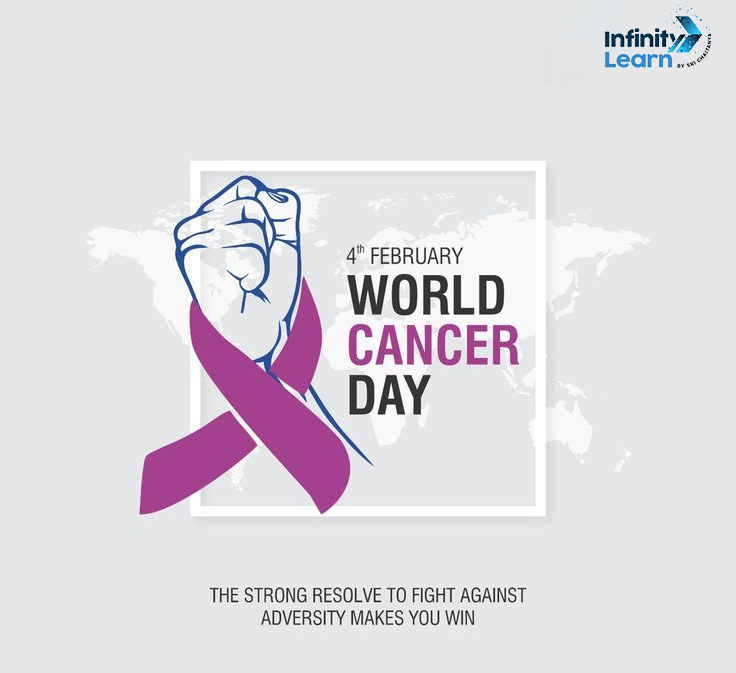
World Cancer Day 2025
World Cancer Day 2025 is going to be celebrated all across the world on Tuesday, 4th of February. It serves as a significant global initiative to raise awareness about cancer, underscore the imperative for equitable access to care, and recognise the progress achieved in the ongoing battle against this devastating disease. It provides a collective platform for individuals, communities, and organisations worldwide to come together in a shared commitment to address the challenges posed by cancer. The day is dedicated to advancing efforts in cancer prevention, diagnosis, treatment, and support for those affected. World Cancer Day plays a crucial role in fostering global solidarity, encouraging ongoing initiatives, and promoting education and advocacy to reduce the global impact of cancer.
History of World Cancer Day
In 1933, the Union for International Cancer Control (UICC) directed the planning of World Cancer Day celebration in Geneva, Switzerland. With the support of various renowned cancer societies, research institutes, treatment centers, and patient groups, the event aimed to address all the necessities in the fight against and control of this deadly disease.
According to reports, more than 12.7 million people are diagnosed with cancer annually, and over 7 million people succumb to it each year. The annual celebration on the 4th of February was established to save millions of lives from cancer by raising awareness, educating people about its symptoms, promoting preventive measures, and guiding them to avoid the risks associated with this epidemic disease. The day focuses on imparting knowledge about a healthy diet, regular and proper physical activity, and educating individuals on how to protect themselves from environmental carcinogens.
How World Cancer Day is Celebrated
To spread the special messages about the cancer awareness and its prevention, the leading health organizations as well as nongovernmental organizations takes part by organizing the camps, awareness programs, rallies, lectures, seminars and etc. Variety of control measures policies gets implemented and people are promoted to join in masses.
Common public, health organizations and other nongovernmental organizations are requested and promoted through many ways before the day celebration to take part during the event celebration. Common people are the main target of the event celebration to which the message is to be spread and shared to get more control over the cancer. A toolkit, having templates, leaflets and direction for various organizations accordingly, is provided by the UICC for better assistance.
This event is celebrated every year by using a particular theme to make this event more result oriented among people. According to the report, people (of low and middle income group) with various types of cancer and death ratios per year are liver cancer/6,10,000, lung cancer/1.3 million, colorectal cancer/6,39,000, stomach cancer/8,03,000, breast cancer/5,19,000 and etc.
During the event, people are informed about cancer risk factors including tobacco use, obesity, low fruit/vegetable intake, lack of physical activity, alcohol consumption, HPV infection, urban air pollution, indoor smoke, genetic factors, and excessive sunlight exposure.
People are also get aware about the vaccination method against the human papilloma virus and hepatitis B virus.
Why World Cancer Day is Celebrated
World Cancer Day actively raises awareness among the general public about the risk factors and preventive measures for cancer, aiming to facilitate prevention and early detection. Typically, individuals afflicted by cancer face societal disdain and are treated as outcasts. The day is dedicated to dispelling social myths about cancer, educating the public on its symptoms, causes, and treatments, and correcting misconceptions that being in close contact with a cancer patient can lead to the disease.
Numerous events are organized on this day to convey the message that individuals with cancer should not be segregated; they deserve equal rights and the opportunity to lead a normal life in society. Regardless of their prognosis, relatives should strive to fulfill their wishes, providing support without altering existing relationships. It is imperative to ensure that individuals with cancer are treated with dignity, fostering an environment where they feel respected and integrated into both their homes and society.
Avoid being overly sympathetic or sharing unsuccessful stories with cancer patients, as it may intensify their pain and fear. Instead, share positive stories to boost their morale, energize them, and instill self-confidence, making their journey easier and happier.
According to the statistics, it has been noted that most of the cancer cases and cancer deaths (47% and 55% respectively) occur in less developed areas of the world. If it is not controlled, this condition may get worse by 2030. So, it is very necessary to get control over such situation at all the corners of the world.
During this event celebration, organizers actively promote healthy lifestyles, stress the importance of maintaining a balanced diet, encourage regular physical activity, and advocate for weight management to decrease the risk of cancer. Attendees are urged to eliminate alcohol habits, discard unhealthy diets, and overcome physical immobility in their lives.
Common Myths and Facts about Cancer
Listed below are some common myths and facts about cancer among people. It is necessary to remove these myths and well understand the reality about cancer to gain control over it.
- Generally people think that cancer tissues are just health issue however it is not.
- Common people think that cancer is a disease for wealthy and old age people however it is a global and epidemic disease which can affect all age group.
- Generally people also think that suffering from the cancer is just like a punishment however most type of the cancer are now well treatable.
- Common people often perceive cancer as their fate; however, it is crucial to note that approximately 30% of cases can be cured and prevented for a lifetime.
World Cancer Day 2025 Theme
The World Cancer Day theme 2025-2027 is “United by Unique”
The new World Cancer Day theme for 2025-2027, “United by Unique,” highlights the strength found in embracing diversity and individuality in the fight against cancer. This theme focuses on the idea that every person’s cancer journey is unique, and by uniting different perspectives, experiences, and approaches, we can strengthen the global effort to raise awareness, improve treatment, and support those affected by cancer. It encourages people to come together, regardless of their background or situation, to create a united front in battling this disease.
1. Limited Access to Healthcare Facilities: Many regions, especially rural areas, lack sufficient and accessible healthcare facilities, making cancer screening and timely treatment challenging.
2. Financial Constraints: The exorbitant costs associated with cancer treatment, prevalent even in developed countries, can deter individuals from seeking necessary care, regardless of their awareness.
3. Stigma and Discrimination: Societal stigma and fear surrounding cancer can discourage people from seeking assistance, with certain cultures or communities experiencing heightened levels of discrimination.
4. Lack of Awareness: Insufficient awareness about cancer symptoms and risks may hinder individuals from pursuing early diagnosis and treatment.
World Cancer Day Themes
World cancer day is celebrated every year using a particular theme; some of the year wise themes are listed below:
>The Theme of the World Cancer Day 2025, 2026, 2027 – “United by Unique”
>The theme of the World Cancer Day 2022, 2023 and 2024 is “Close the Care Gap”.
> The theme of the World Cancer Day 2019, 2020 and 2021 is “I am and I will”.
> The theme of the World Cancer Day 2016, 2017 and 2018 was “We can. I can.”
> The theme of the World Cancer Day 2015 was “Not beyond us”.
> The theme of the World Cancer Day 2014 was “Debunk the Myths”.
> The theme of the World Cancer Day 2013 was “Cancer – Did you know?”
> The theme of the World Cancer Day 2012 was “Together it is possible”.
> The theme of the World Cancer Day 2011 was “Teaching Children and Teenagers to limit their sun exposure by being SunSmart!”
> The theme of the World Cancer Day 2010 was “Vaccinating to prevent virus related liver cancers “.
> The theme of the World Cancer Day 2009 was “I love my healthy active childhood”.
> The theme of the World Cancer Day 2008 was “Give children and young people a smoke-free environment”.
>The theme of the World Cancer Day 2007 was “Today’s children, tomorrow’s world”.
Significance of World Cancer Day
World Cancer Day holds immense importance due to several critical factors:
1. Global Burden: With cancer causing around 10 million deaths each year globally, it highlights the urgent need for concerted efforts to combat this pervasive and devastating disease.
2. Unequal Burden: Cancer’s impact is not uniform globally. Low- and middle-income countries often struggle to access vital cancer prevention, diagnosis, and treatment services. Addressing these disparities is essential for achieving fair and equitable health outcomes.
3. Evolving Landscape: Constant advancements in cancer research uncover new insights into the disease and lead to innovative treatment options. World Cancer Day serves as a platform to showcase these breakthroughs and advocate for their widespread availability.
4. Collective Action: The day fosters a sense of unity in the global fight against cancer. It unites researchers, healthcare professionals, policymakers, advocacy groups, and those affected by cancer to collaborate and make meaningful progress.
5. Hope and Inspiration: Despite the challenges, World Cancer Day offers a message of hope and inspiration. It celebrates the resilience of cancer survivors, acknowledges the dedication of healthcare workers, and underscores the transformative power of collective action in making a positive impact.
| Explore Related Articles on Major Events | |
| International day of Forest | Legal Services Day |
| Martyrs Day in India (Shaheed Diwas) | Wild Life Week in India |
| All Saints Day | World Deaf Day |
| World Vegan Day | Gandhi Jayanti 2023 |
| Republic Day Parade | International Week of Science and Peace |
| World Photography Day | International Day of Disabled Persons |
| World Poetry Day | World Day for Safety and Health at Work |
| International Day of Women and Girls in Science | International Epilepsy Day |
| World Thalassemia Day | World Refugee Day |
| Pravasi Bhartiya Divas | National Mathematics Day |
| Universal Children’s Day | Guru Gobind Singh Jayanti 2024 |
World Cancer Day Poster
Below given are a few examples of the World Cancer Day Poster. You may download them for your reference.
<World Cancer Day Poster 1>
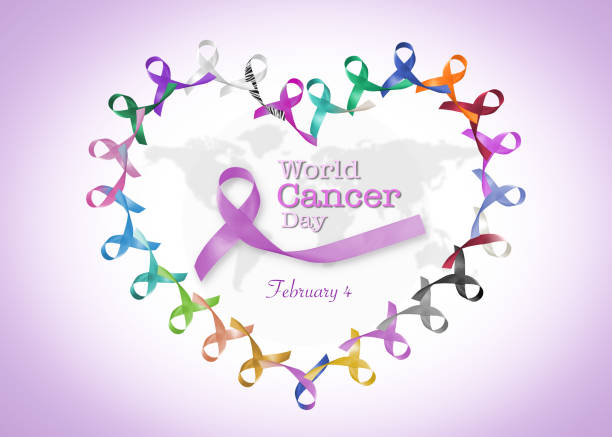
<World Cancer Day Poster 2>
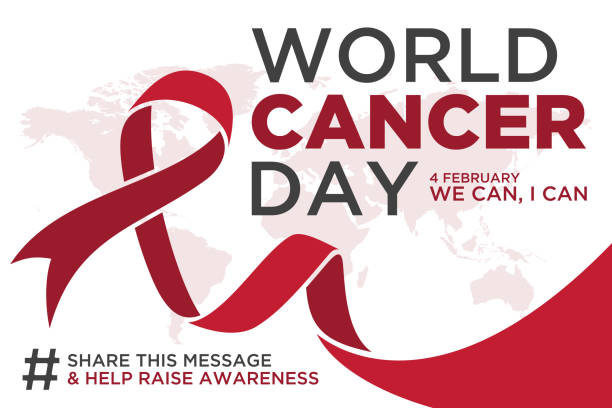
<World Cancer Day Poster 3>
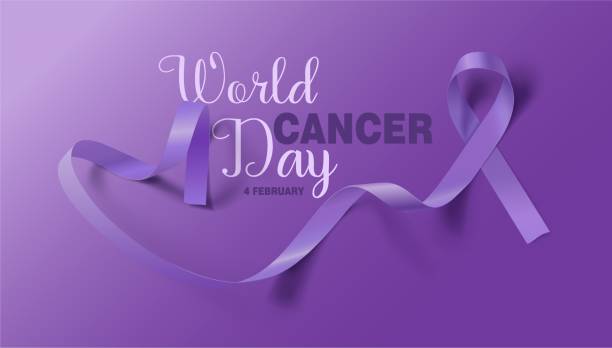
<World Cancer Day Poster 4>
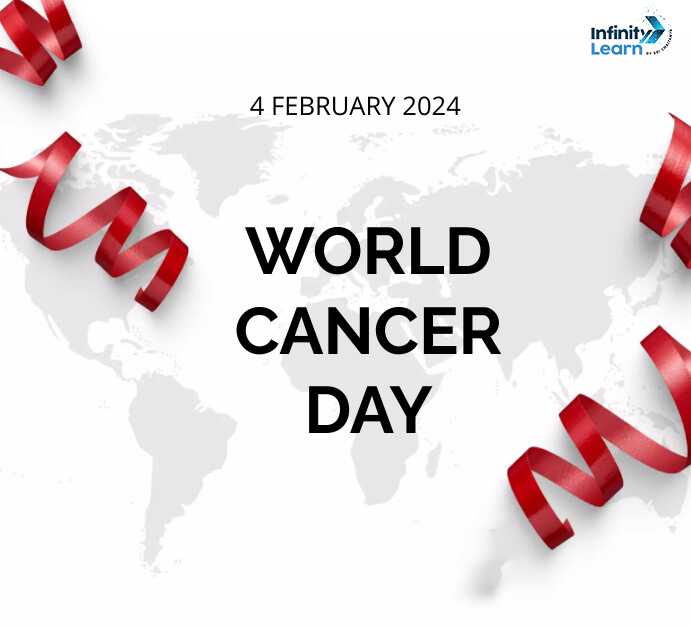
World Cancer Day 2025: FAQs
What is the theme for World Cancer Day 2025?
The theme for World Cancer Day 2025 is United by Unique. This theme emphasizes a people-centered approach to cancer care, highlighting the importance of personalized treatment and the unique experiences of individuals affected by cancer.
When is Cancer Awareness Day in 2025?
Cancer Awareness Day, commonly known as World Cancer Day, is observed on February 4, 2025. This day aims to raise awareness about cancer prevention, detection, and treatment globally.
Is World Cancer Day the same every year?
Yes, World Cancer Day is celebrated annually on February 4th each year. However, the themes and campaigns associated with it may change periodically to address different aspects of cancer awareness and care.
How can individuals participate in World Cancer Day activities?
Individuals can participate by sharing their personal stories related to cancer, engaging in local awareness events, using social media to spread information about cancer prevention, and advocating for better healthcare policies related to cancer care.
Why is February 4 celebrated as World Cancer Day?
February 4 is celebrated as World Cancer Day to raise global awareness about cancer and encourage its prevention, detection, and treatment. Established in 2000 at the World Cancer Summit for the New Millennium, this day aims to unite individuals and organizations in the fight against cancer.









